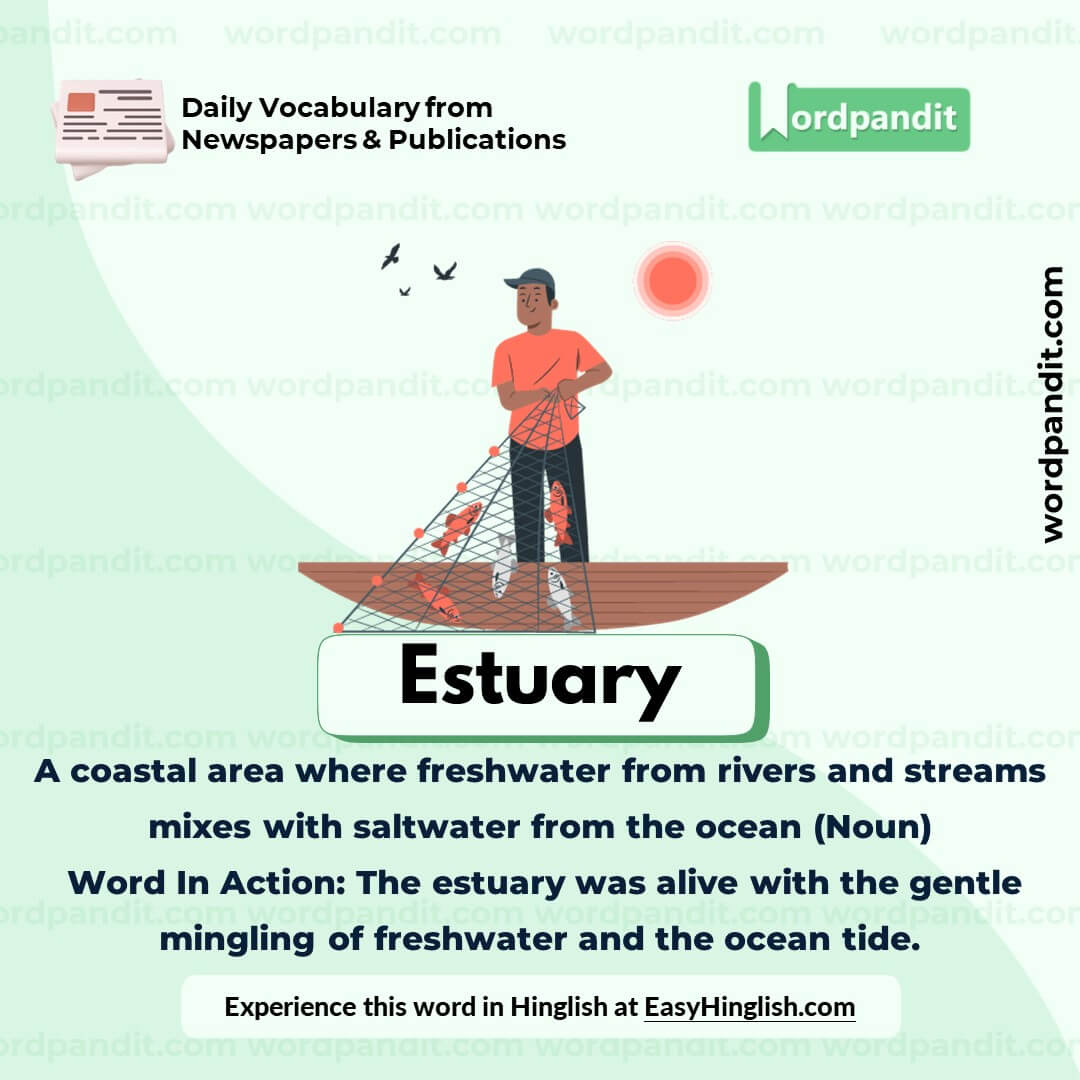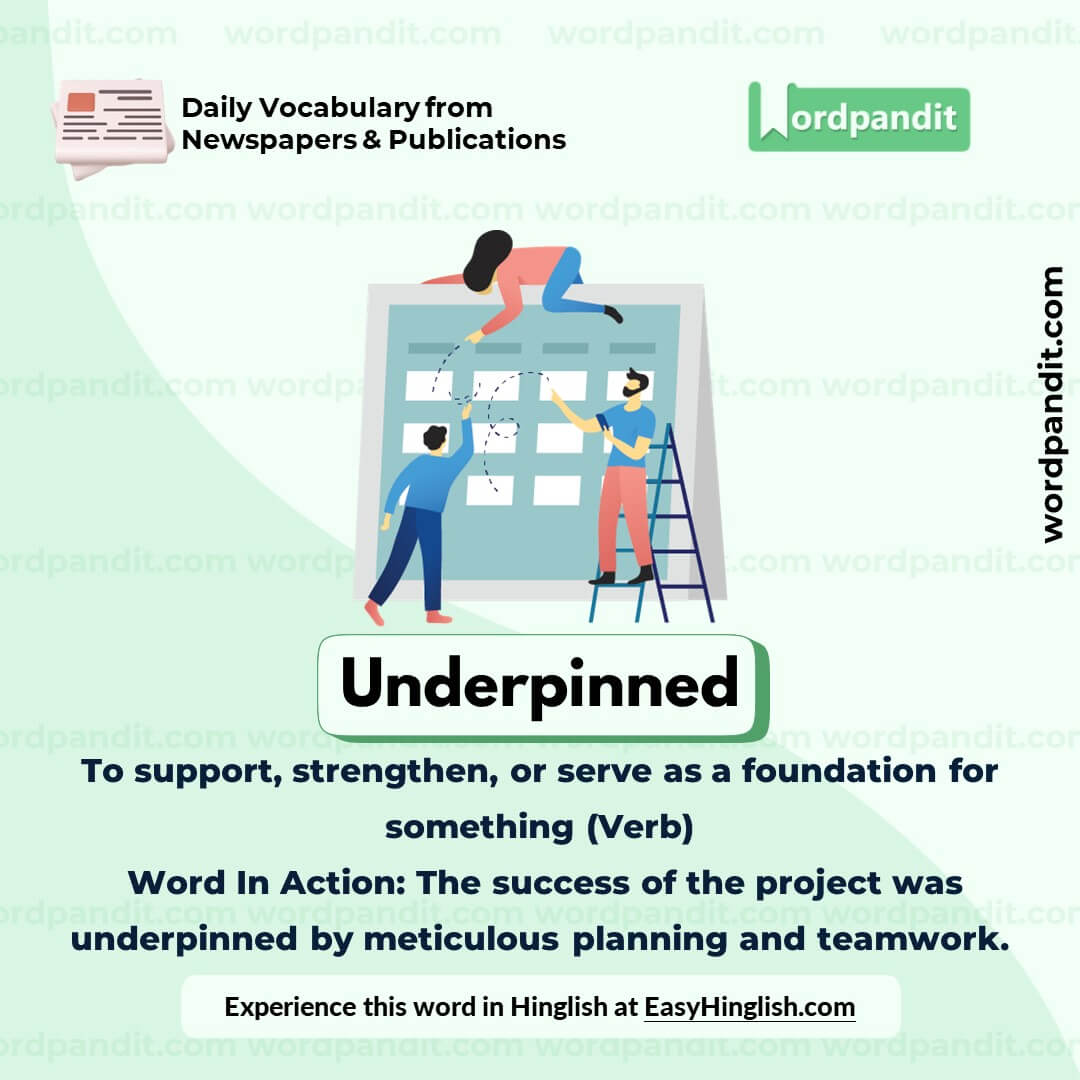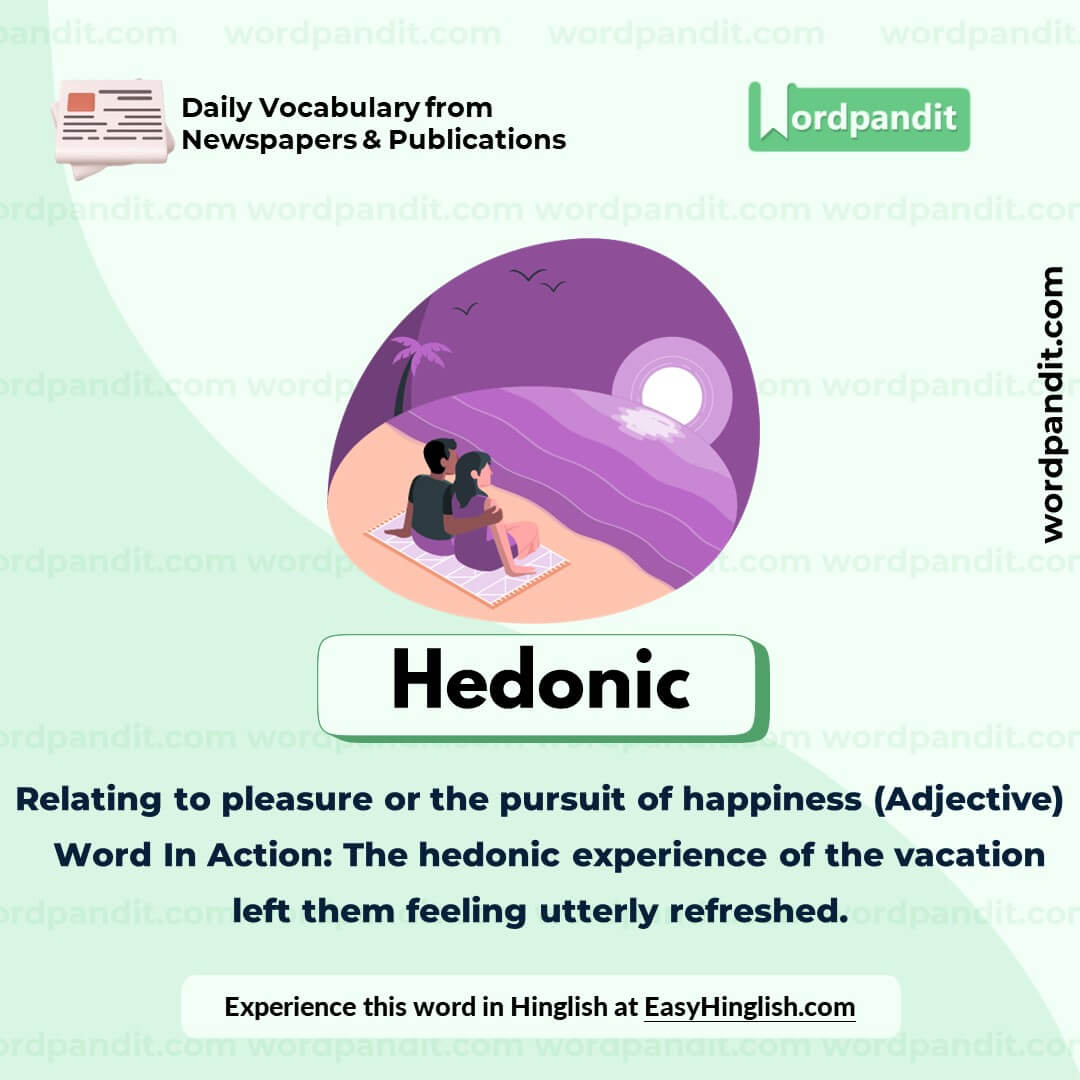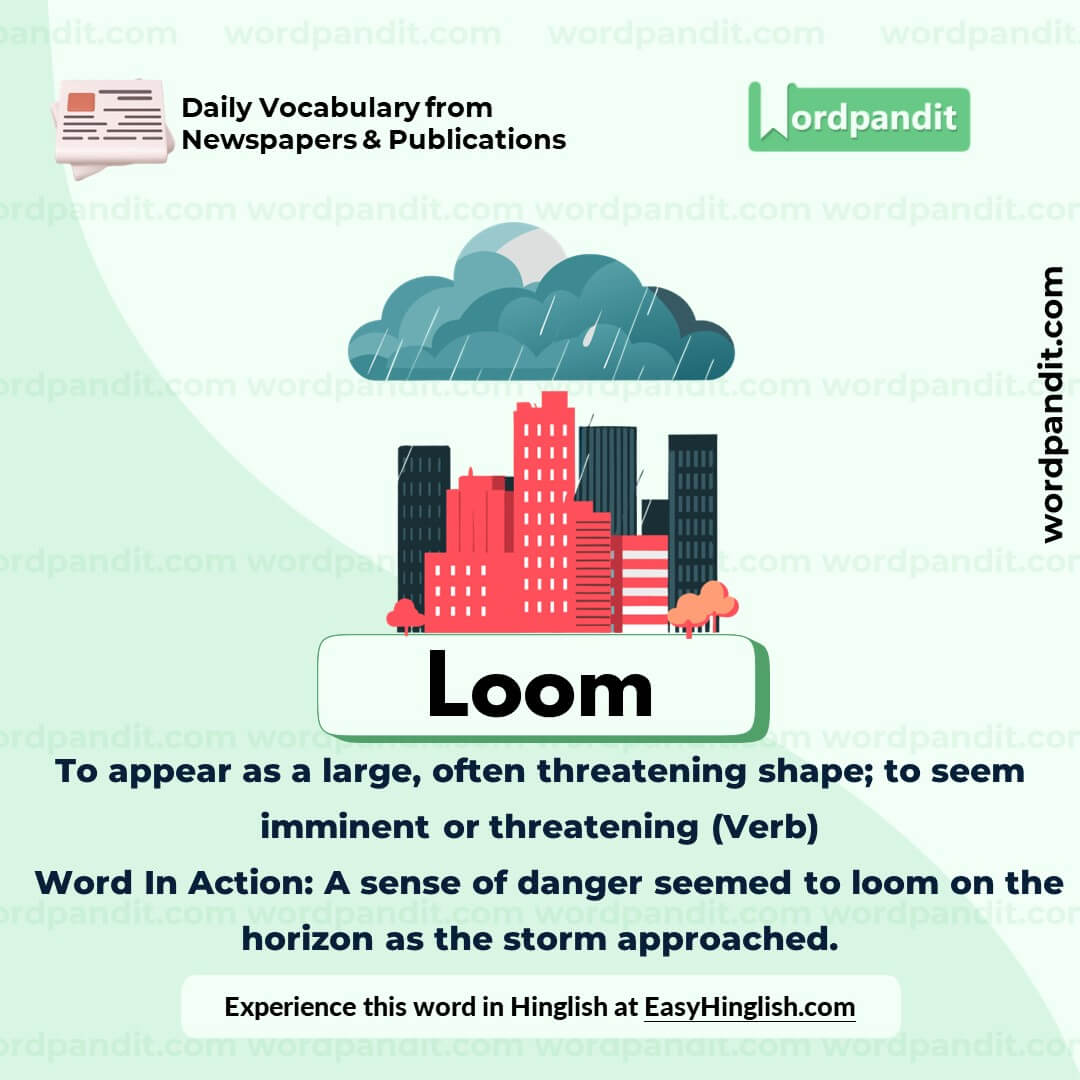Daily Vocabulary from International Newspapers and Publications
Expand Your Vocabulary with Wordpandit’s Global Vocabulary Hub
At Wordpandit, we are committed to helping you develop a truly global vocabulary by drawing from some of the most respected international publications. This section is designed to keep you ahead of the curve by introducing you to words that define global conversations and trends.
The Power of Global Sources
To help you think and communicate on a global scale, we curate vocabulary from renowned international sources, such as:
- The New York Times
- The Washington Post
- BBC
- The Guardian
- The Economist
- Scientific American
- Psychology Today
- And many more...
Stay Global, Stay Competitive
Our daily updates from international publications ensure you are consistently exposed to new words that reflect global news and developments, making sure your vocabulary is not only current but also globally relevant.
Enhance Your Global Perspective
Whether you’re preparing for international exams, aiming to excel in global business communication, or want to enhance your language skills for personal growth, Wordpandit offers the resources you need to thrive in a global context.
Effective Learning, Global Reach
Our learning methodology combines global examples, memory aids, and interactive activities, allowing you to internalize new words effectively and apply them in real-world scenarios.
Begin Your Global Vocabulary Journey Now!
Why Choose Wordpandit?
Practical Learning: Focus on words you'll actually encounter in real-world reading, enhancing your comprehension and communication skills.
Diverse Content: From current affairs to scientific breakthroughs, our varied sources expose you to vocabulary across multiple domains.
Effortless Integration: Make Wordpandit a part of your daily routine. Just a few minutes each day can significantly boost your lexicon over time.
Your Path to Vocabulary Mastery
- Visit our Daily Vocabulary section regularly
- Explore new words and their usage in context
- Practice incorporating these words into your own writing and speech
- Track your progress as your vocabulary expands
Start Your Journey Today
Embark on your vocabulary enhancement journey with Wordpandit. By consistently engaging with our daily posts, you'll build a robust vocabulary that serves you well in academic, professional, and personal contexts.
Remember, a word a day keeps linguistic limitations at bay. Make Wordpandit your daily companion in the quest for vocabulary excellence!
WORD-1: Estuary
Context:
"Alongside a river estuary close to the Sicilian city of Syracuse. People were shocked when a total of 88 colonies were eventually located, but the appearance of the red fire ant in Europe shouldn’t be a surprise." - Aeon
Explanatory Paragraph:
An estuary is a body of water where a river meets the sea, mixing fresh and saltwater to create a unique and dynamic environment. These areas are often rich in biodiversity and serve as critical habitats for various species, including fish, birds, and plants. Estuaries are also important for human activities such as fishing, shipping, and recreation.
Meaning: A coastal area where freshwater from rivers and streams mixes with saltwater from the ocean. (Noun)
Pronunciation: ESS-choo-air-ee
Difficulty Level: ⭐⭐ Intermediate
Etymology: Derived from the Latin word "aestuarium," meaning "a tidal marsh or inlet," which comes from "aestus," meaning "tide or surge."
Synonyms & Antonyms:
Synonyms: Delta, inlet, tidal marsh, sound
Antonyms: Source, headwaters
Usage Examples:
- The estuary is home to a variety of migratory bird species that thrive in its brackish waters.
- Local fishermen depend on the estuary for their livelihood, as it teems with fish and shellfish.
- The estuary’s wetlands act as a natural buffer, protecting the inland areas from flooding.
- Scientists are studying the estuary to understand its role in carbon sequestration.
Cultural Reference:
"The Thames Estuary has long been a vital part of London’s history, serving as a hub for trade and exploration during the British Empire." - Historical Archives
Think About It:
How do you think climate change might affect the delicate balance of ecosystems in estuaries worldwide?
Quick Activity:
Identify the nearest estuary to your location and research one unique species that depends on its habitat.
Memory Tip:
Remember "estuary" by associating it with "E for Entry" where a river enters the sea.
Real-World Application:
Estuaries play a crucial role in environmental sustainability by acting as natural water filters and storm barriers, making them essential to conservation efforts.
WORD-2: Underpinned
Context:
"Recognition looks very different for humans and insects. Human society relies on networks of reciprocity and reputation, underpinned by language and culture." - Aeon
Explanatory Paragraph:
To say something is "underpinned" means it is supported or strengthened by a foundational element. For example, a concept, system, or structure can be metaphorically "held up" or sustained by certain principles or components. In the given context, human society's reliance on reciprocity and reputation is reinforced by the foundational elements of language and culture.
Meaning: To support, strengthen, or serve as a foundation for something. (Verb)
Pronunciation: UN-der-pind
Difficulty Level: ⭐⭐⭐ Advanced
Etymology: Derived from the Middle English "pin," meaning "a peg," combined with "under," indicating a foundational or supporting position.
Synonyms & Antonyms:
Synonyms: Bolstered, supported, reinforced, buttressed
Antonyms: Undermined, weakened, destabilized
Usage Examples:
- The success of the policy was underpinned by years of rigorous research and testing.
- Her confidence is underpinned by her vast experience in the field.
- The stability of the bridge is underpinned by its deep concrete foundations.
- The argument is underpinned by a wealth of historical evidence and logical reasoning.
Cultural Reference:
"The philosophy of democracy is underpinned by the belief in equality and the value of every individual." - Political Science Textbooks
Think About It:
Can you think of an example where a strong foundation (literal or metaphorical) was essential for success?
Quick Activity:
List three systems or ideas that are underpinned by fundamental principles, and identify the principles supporting them.
Memory Tip:
Picture a pin holding something up from beneath—it’s "underpinned" and supported firmly.
Real-World Application:
Understanding how systems are underpinned can help in problem-solving, as it allows you to address foundational issues rather than surface-level symptoms.
WORD-3: Garrulous
Context:
"To an American reader in 1982, confronted with this garrulous, indefatigably quirky, I'm-just-typing-on-yellow-paper-and-associating-ideas-and-memories prose work of 1936, such a judgment, by a presumably informed person, seems preposterous." - Aeon
Explanatory Paragraph:
The word "garrulous" describes someone or something that is excessively talkative, often about trivial matters. It conveys an image of constant chatter or an overabundance of words, usually more than necessary. In literature, it can be used to characterize verbose prose or characters who love to talk endlessly.
Meaning: Excessively talkative, especially about trivial matters (Adjective)
Pronunciation: GAR-uh-lus
Difficulty Level: ⭐⭐⭐ Intermediate
Etymology: From Latin "garrulus" meaning "talkative," derived from "garrire," meaning "to chatter."
Synonyms & Antonyms:
Synonyms: Talkative, loquacious, verbose, chatty
Antonyms: Taciturn, reticent, silent, reserved
Usage Examples:
- The garrulous man at the café spent an hour regaling everyone with stories about his youth.
- Her garrulous nature made her the life of the party, as she could strike up a conversation with anyone.
- The garrulous prose of the book, while engaging, was overwhelming for some readers.
- During the meeting, his garrulous comments delayed the decision-making process significantly.
Cultural Reference:
"The garrulous nature of social media platforms often leads to an overwhelming influx of trivial information." - Popular Media Analysis
Think About It:
Is being garrulous always a negative trait, or can it sometimes lead to meaningful social connections and engagement?
Quick Activity:
Write a short paragraph about a garrulous character in a novel or movie. How does their talkative nature contribute to the story?
Memory Tip:
Remember "garrulous" by associating it with "gargle"—just as gargling makes continuous, unnecessary sounds, a garrulous person talks excessively.
Real-World Application:
"Garrulous" is often used to describe characters in literature or real-life personalities whose excessive talkativeness either charms or irritates others. Recognizing such behavior can help in adjusting communication styles for effective interaction.
WORD-4: Hedonic
Context:
"The famous image for this in modern psychology is the hedonic treadmill: we’re always running toward what we think will make us happier, and always ending up back where we started." - Psyche
Explanatory Paragraph:
The word "hedonic" relates to pleasure or happiness, especially in the context of experiences or activities that provide enjoyment. It is often used in psychology and philosophy to discuss motivations, behaviors, or lifestyles focused on the pursuit of pleasure and avoidance of pain. The term also appears in discussions about the "hedonic treadmill," which describes the tendency of people to return to a baseline level of happiness despite positive or negative life changes.
Meaning: Relating to pleasure or the pursuit of happiness. (Adjective)
Pronunciation: heh-DAWN-ik
Difficulty Level: ⭐⭐⭐ Advanced
Etymology: From the Greek word "hedone," meaning "pleasure" or "delight."
Synonyms & Antonyms:
Synonyms: Pleasurable, enjoyable, gratifying, delightful
Antonyms: Painful, discomforting, austere, ascetic
Usage Examples:
- The vacation was planned with a purely hedonic goal: maximum relaxation and fun.
- Philosophers have long debated whether a hedonic lifestyle leads to true happiness or fleeting satisfaction.
- The hedonic nature of the festival made it a highlight of the year for many attendees.
- Marketing often appeals to the hedonic desires of consumers by emphasizing luxury and enjoyment.
Cultural Reference:
"The concept of the 'hedonic treadmill' is often used in discussions about consumerism and the fleeting nature of material satisfaction." - Psychology Today
Think About It:
Do you believe that the pursuit of pleasure is the key to a happy life, or is there more to lasting fulfillment?
Quick Activity:
Write down three activities that bring you hedonic pleasure. Reflect on whether they contribute to your long-term happiness or provide only short-term satisfaction.
Memory Tip:
Associate "hedonic" with "hedonism" and the idea of seeking pleasure—both start with "hedo" and focus on enjoyment.
Real-World Application:
Recognizing hedonic tendencies can help in personal development by balancing short-term pleasures with long-term goals and values.
WORD-5: Loom
Context:
"On top of all of that is the looming danger of climate change and the creeping sense that you might not be able to survive without having power over vast resources." - Psyche
Explanatory Paragraph:
The word "loom" can be used both literally and figuratively. Literally, it refers to something appearing in a large or threatening way, often indistinctly, on the horizon or in one’s view. Figuratively, it describes situations or threats that are imminent and cause anxiety. In the given context, the "looming danger of climate change" suggests a growing and inevitable challenge that casts a metaphorical shadow over the future.
Meaning: To appear as a large, often threatening shape; to seem imminent or threatening. (Verb)
Pronunciation: loom
Difficulty Level: ⭐⭐ Intermediate
Etymology: Originates from the Middle English "lome," meaning "to appear indistinctly," and possibly from Old Norse "lúma," meaning "to lie hidden."
Synonyms & Antonyms:
Synonyms: Approach, overhang, threaten, impend
Antonyms: Recede, withdraw, disappear, retreat
Usage Examples:
- The mountain loomed in the distance, shrouded by clouds.
- With the deadline looming, the team worked tirelessly to complete the project.
- Dark storm clouds loomed on the horizon, signaling an impending downpour.
- Financial challenges loom large for small businesses during economic downturns.
Cultural Reference:
"The phrase 'looming specter' is often used in literature and politics to describe an approaching threat or challenge, such as war or disaster." - Literary Devices Guide
Think About It:
What are some strategies you can use to face challenges that seem to loom over you?
Quick Activity:
Describe a situation in your life where a problem seemed to loom large. How did you handle it?
Memory Tip:
Picture a large object suddenly appearing in the distance—it "looms" ominously, drawing attention and concern.
Real-World Application:
The term "loom" is commonly used to describe significant global challenges like climate change or economic crises, helping to convey their urgency and seriousness.
















